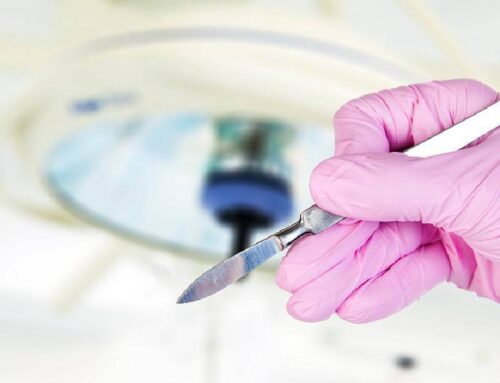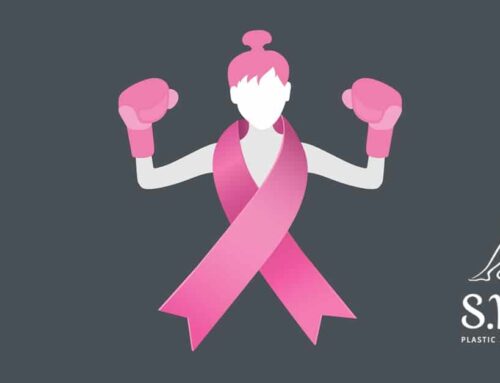“I had plastic surgery” used to be a secret whispered among only the best of friends. Women would admit to their nips and tucks over coffee or tea with the window shades pulled to ensure that no one else would know. They would boast about their “wonderful” plastic surgeon and how he was, literally, able to stop the hands of time. These intimate settings served as a safe haven for many women who would otherwise never dare admit to having had anything “done.” Meanwhile, the neighbors would leer in Mrs. Jones’ direction, complimenting the refreshed appearance that allowed her to pass for 45 when we all knew she was well into her 60s. The stigma associated with plastic surgery 20 years ago kept these women and their surgical scars well hidden.
The days of hiding plastic surgery scars are long gone! The popularity of plastic surgery in mainstream media has taken private and once tabooed discussion from behind closed doors and pulled curtains and has moved them to watercoolers and dining room tables everywhere. The American Society of Plastic Surgeons reported a 115% rise in the number of cosmetic procedures performed last year, with more than 15 million surgical and non-surgical cosmetic procedures being performed. Breast lifts are up by 89% and the top five most-commonly performed procedures were breast augmentations, liposuction, rhinoplasty, eyelid surgery, and – my all-time favorite – the tummy tuck.
The change in these statistics has been attributed to many things, with social media being among the top contenders demanding the change. Five minutes on Instagram or Facebook will leave you asking yourself if the vampire facial is for you and what exactly is a BBL (Brazilian Butt Lift, by the way).
As a black, female plastic surgeon in Atlanta, I am thrilled when a patient has “done their homework” and has a good understanding of what they are wanting to enhance or improve. What does surprise me, however, is the recurring statement that I sometimes hear from women who look like who say, “Black folks don’t do that,” or that “We don’t need plastic surgery.” Is the stigma associated with plastic surgery truly gone, or only in some communities?
My Perspective on Cosmetic Surgery
Before I answer that question, let me first tell you a little bit about me. I’m a black woman who was reared in a Caribbean household in Westchester, New York. I didn’t know much about plastic surgery until I became a physician and fell in love with the diversity of the procedures and the artistic freedom that the field allows. As a first-year plastics resident in New Orleans, I was reluctant to have Botox and swore my Haitian grandmother would get out of her grave and slap me if I even thought about having an aesthetic surgery. So, rather than have my Botox like all the other residents during Botox clinic, I would secretly schedule my Botox appointments after hours after having my staff members promise to tell no one. To say that I completely understand why, for some Black women, the thought of partaking in plastic surgery seems so wrong, is an understatement. However, in the past five years, I have learned (and have now taught many others) why, as black women, we need to be more open minded about aesthetic procedures and surgery.
So, to start, I tell ALL of my patients that aesthetic surgery is not about need, but instead about WANT. Patients do not need to have their dorsal humps corrected, but they opt to do so because they WANT to improve their nasal profile, improve their facial symmetry, and feel more confident about themselves. These patients aren’t unhappy with their overall facial appearances; they just don’t want their noses to be the most prominent thing in the picture. Patients do not need to augment their breasts, but by fulfilling that desire, they improve their appearance in their clothing, as well as the way they feel in their skin.
It’s Not What You See, But What You Feel
You see, a big part of cosmetic surgery is not what you or I SEE but instead what he or she FEELS. Often, the same women who question why I promote aesthetic procedures, such as injectables and liposuction, have no qualms about women having breast reductions and breast reconstructions because those operations are understood to be medically necessary.
As a plastic surgeon, I believe many of the aesthetic procedures are necessary as well. Injectables in your 20s and 30s significantly improves the appearance of fine lines and wrinkles when you are in your 40s and 50s. Liposuction and body contouring allow you to maintain the shape that you worked so hard to achieve, while also correcting those stubborn areas that just refuse to improve on their own. The excess skin and weakened abdominal wall that resulted after pregnancy can be easily corrected to lead to a sleek abdominal contour so you are not just a wonderful mommy, but once again a sexy wife.
The way we feel about how we look is important. The way we feel about ourselves plays a major role in the way we present ourselves to, and the way in which we interact with, others. Complexes and insecurities about appearances hinder us in ways we sometimes fail to acknowledge. Whether it’s a preferred side when taking a photograph or positioning yourself in the back of the group to hide your less than perfect arms, thighs, or tummy, these acts become routine, as does the way we feel about the way we look. We confine our wardrobes and even our social activities, sometimes unknowingly, because of an unaddressed contour concern. So, while it may seem taboo to consider aesthetic surgery in some communities, I believe it is not only healthy, but necessary to remind all women that it is okay to want to improve something about yourself. It does not equate to vanity or selfishness to want to be happy in the skin that you are in, regardless of age, sex or race.






Leave A Comment
You must be logged in to post a comment.